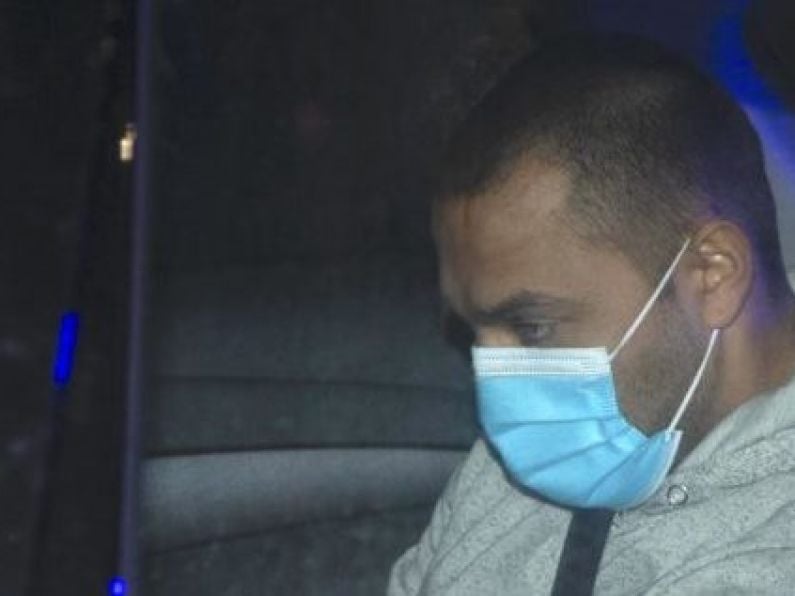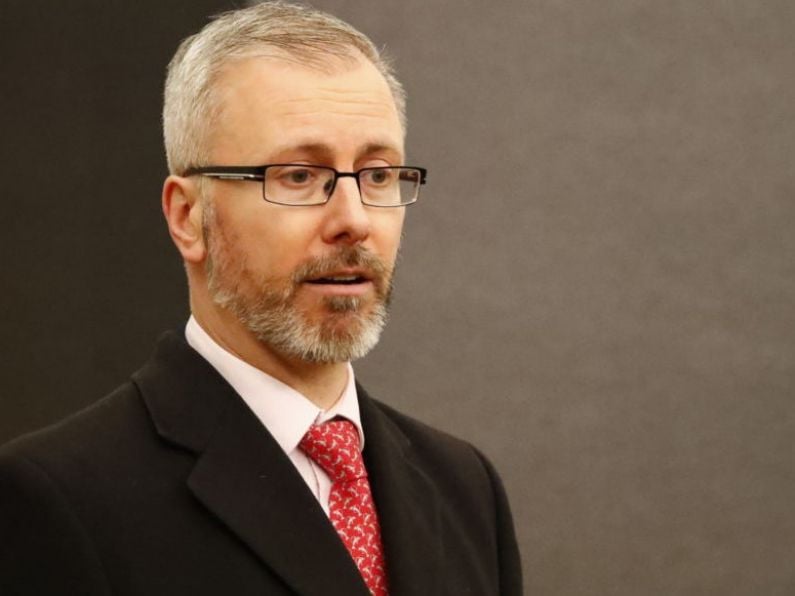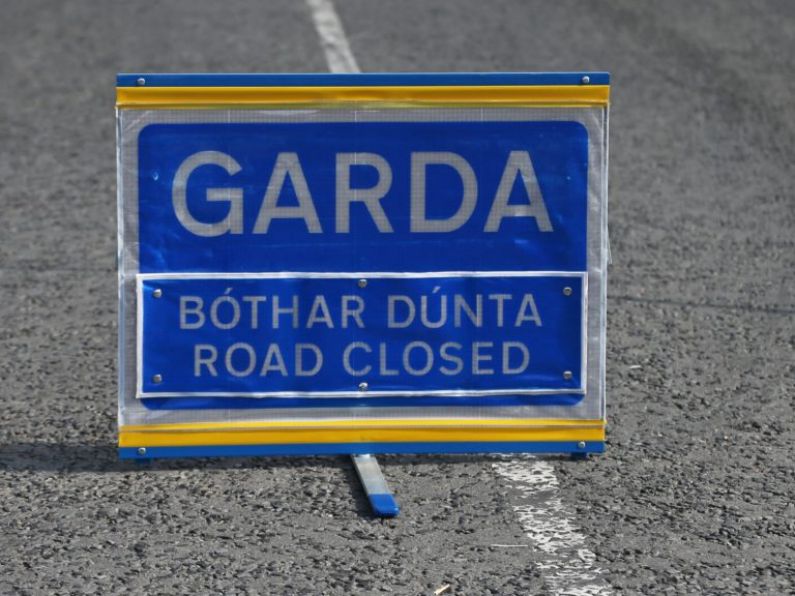An autistic Kilkenny man has been found not guilty by reason of insanity of attempting to murder his pregnant sister so she wouldn’t raise her child in Dublin.
The Central Criminal Court trial heard that Daniel O’Connell had first developed homicidal feelings for his sister when she had settled in Dublin years earlier, due to the fear that she would have a baby born and raised there.
He had developed what the prosecution described as ‘an unnatural and almost pathological dislike of Dublin and Dublin people’ as a child when teased by a group of Dublin youths during a school trip to Mosney.
He became more upset when he learned of her pregnancy a few months before he attacked her. However, he hoped that she might die of natural causes when he heard that she had been diagnosed with cancer around the same time.
This didn’t happen and Mr O’Connell admitted during Garda interviews that he had tried to kill Olivia O’Connell (now 42) by stabbing her a number of times in her Dublin home.
However, the 33-year-old with an address at Rosemount, Newpark, Co Kilkenny had pleaded not guilty to her attempted murder on April 25, 2016, at Scholarstown Park, Scholarstown Road, Knocklyon.
Consultant psychiatrists for both the prosecution and the defence testified that he was entitled to a special verdict of not guilty by reason of insanity.
The trial heard that his computer had been used to search for the terms, ‘murder-suicide’ and ‘not guilty by reason of insanity’, in the months before the stabbing. There were also searches for ‘jugular vein’ and ‘wrist’ three days before the incident.
He told gardai that he had travelled to Dublin with a knife, hammer and duct tape with a plan to kill his sister that Monday, while his parents were away. He said he had planned to kill himself 12 days later during a weekend in London with his father.
The jury heard that Ms O’Connell was 26 and a half weeks pregnant and suffering the effects of chemotherapy when her younger brother arrived at her house unexpectedly that afternoon.
She told Gardaí that the accused was almost tearful when he arrived. She was aware of his autism and of his feelings about Dublin. She also knew that he was upset about her pregnancy and tried to keep herself covered with a blanket.
The accused went upstairs to use the toilet and came back down wearing latex gloves and carrying a knife. He stabbed her three to four times in the back before she managed to break free.
She understood that this was a fight for her life and she struggled with her brother, managing to wrestle the knife from him. She tried to get out the back door through which he had entered, but he had taken the key.
She then tried to run out the front door, but he kicked her into the back of the calves. She eventually escaped when her dressing gown ripped. She ran to a neighbour’s house, trying to hide the knife and to remain calm for the sake of her neighbour’s children.
The accused was still in the area when the Gardaí arrived, and he admitted the attack and his full motivation. He said he wanted to kill his sister ‘because she was carrying a Dublin baby’.
He also said that he was suicidal, didn’t want to be alone in heaven and didn’t want to leave all his family behind.
Garda Niall Russell arrested him under the Mental Health Act, and he was seen by a doctor, who sent him to the psychiatric unit in St Luke’s Hospital, Kilkenny.
He was fit for interview three weeks later, and he explained that he had first decided to kill his sister that St Stephen’s Day. He also disclosed his elaborate preparation, including that he had not used his travel pass to get to Dublin so that it wouldn’t be traced.
Dr Paul O’Connell of the Central Mental Hospital testified for the defence, giving evidence of his meetings with the accused while he was an impatient there this year.
“I was annoyed that she fought me off and survived,” the accused had said at one stage, illustrating what the doctor described as ‘a profound impairment of judgment’.
The doctor also noted that the accused man’s parents had said he showed little or any remorse for his sister.
Dr O’Connell explained that the defence of ‘not guilty by reason of insanity’ required a diagnosis of a mental disorder. His opinion was that the accused man’s autism was consistent with that.
“In my opinion, the alleged offence would not have occurred were it not for the mental disorder operating at the material time,” he said. “It was such that the accused’s capacity to form the necessary intent was negated.”
Consultant forensic psychiatrist Dr Anthony Kearns testified on behalf of the DPP.
Dr Kearns, also of the Central Mental Hospital, said the accused still harboured views about Dubliners ‘on the basis of what appears to me to be quite a tenuous reasoning’.
“He still shows extremely little understanding of the inappropriateness of his catastrophic actions or their effect on others,” he added.
He was also of the view that his autism disorder was a mental disorder under the Insanity Act.
“He has great difficulty in constructing appropriate strategies for dealing with threats and fears and, importantly, perceived threats,” he said, adding that his autism would have compromised his understanding of what constituted a threat.
“At the time of the offence, he had set out on a course of action, which would have appeared irrational and dangerous to a person without his disorder, but to him appeared necessary,” he added. “He did not properly understand that what he was doing was wrong.”
He also believed that the special verdict of not guilty by reason of insanity was appropriate in the case.
The jury then heard brief closing speeches from both sides. Michael Bowman SC, prosecuting, said that, because the facts of the case were admitted, Mr O’Connell’s ‘state of mind is where the true battleground in this case lies’.
However, he said that no dispute arose between the prosecution and the defence in relation to his state of mind.
He said that both doctors came to a similar conclusion, that Mr O’Connell suffered from a mental disorder. He said their evidence was ‘in conformity’ with a verdict of not guilty by reason of insanity, suggesting that verdict.
Vincent Heneghan SC, defending, said he agreed entirely with Mr Bowman.
“I ask you to return a special verdict of not guilty by reason of insanity,” he said.
Mr Justice Paul Butler said that it must have been an absolutely horrendous experience for the victim.
“She was vulnerable, she was pregnant, she was suffering an illness and it was a horrendous attack,” he said. “She has my greatest sympathy.”
However, he summarised the medical conclusions for the six men and six women of the jury, telling them he didn’t think that they’d have the slightest difficulty in reaching a unanimous verdict.
The jury returned with that unanimous verdict following two hours and six minutes of deliberations, finding the accused not guilty by reason of insanity.
Mr Heneghan said an order could be made committing the accused to the Central Mental Hospital and that he could be accompanied there by Gda Russell. He is due before the court again on Monday, October 23rd, when a future plan for his treatment would be decided.
The judge thanked the jury, extended his appreciation to Gda Russell and again expressed his sympathy with the victim.






